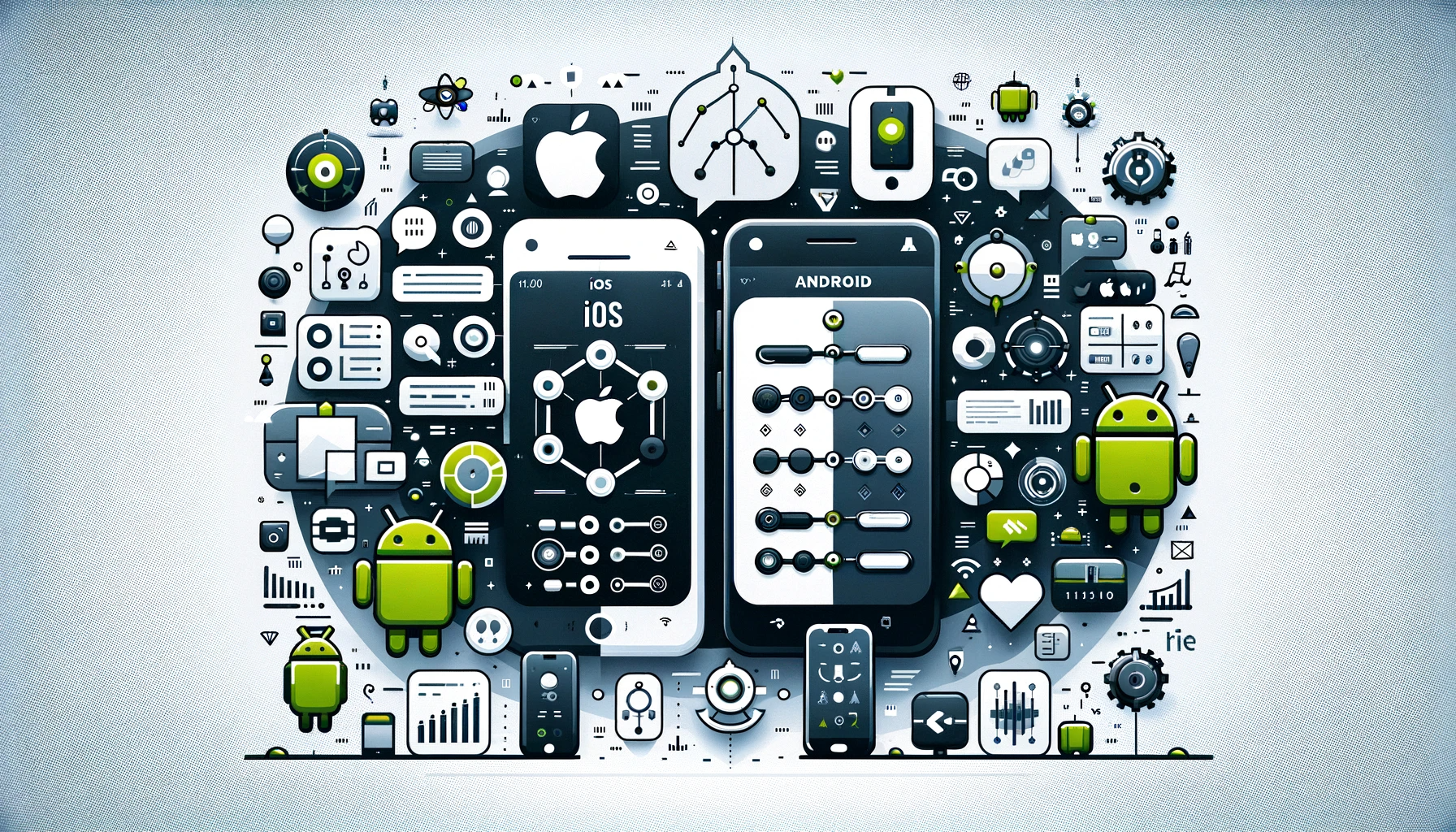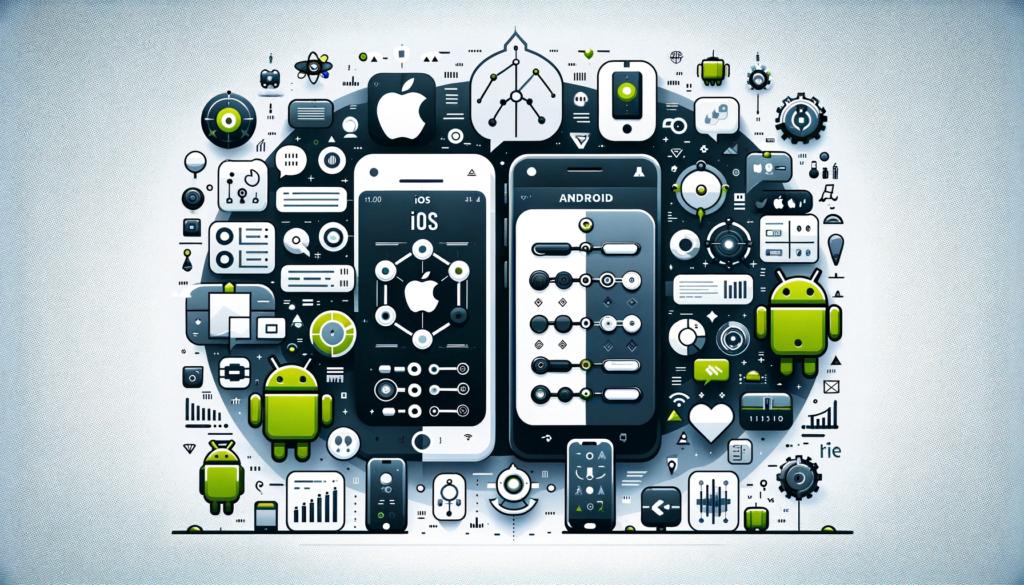Physical Address
304 North Cardinal St.
Dorchester Center, MA 02124

Physical Address
304 North Cardinal St.
Dorchester Center, MA 02124


In the ever-evolving world of smartphones, two operating systems stand at the forefront: Apple’s iOS and Google’s Android. These platforms have revolutionized the way we communicate, work, and entertain ourselves. While they share some similarities, their differences are notable and can significantly influence a user’s experience. This article aims to provide a comprehensive comparison between iOS and Android, examining their interface, customization, app availability, security, and overall user experience.
iOS is known for its simple, clean, and intuitive interface. Apple’s control over both hardware and software results in a seamless and fluid experience across all iOS devices. The consistency in design and operation across apps due to strict design guidelines ensures a user-friendly experience, especially for those new to smartphones.
Android, on the other hand, offers a more customizable interface. Users have the freedom to alter the look and feel of their devices extensively, thanks to third-party launchers and widgets. This customization can, however, lead to a less consistent user experience, as the interface can vary significantly from one Android device to another.
Customization is one of the most significant differences between iOS and Android. Android is open-source, allowing manufacturers and users to tweak the operating system to their liking. This flexibility enables users to personalize everything from the home screen layout to the default apps and software features.
iOS, while offering some level of customization, such as changing wallpapers and arranging app icons, is generally more restricted. Apple prioritizes a controlled environment, which, while limiting customization, contributes to its renowned stability and ease of use.
Both iOS and Android boast vast app stores, but there are differences in availability and quality. The Apple App Store is often the first choice for developers to launch new apps or updates, primarily due to its lucrative user base. iOS apps are generally perceived as more polished, thanks to Apple’s strict app review process.
Android’s Google Play Store has a larger number of apps, partly due to the less stringent approval process. While this means more variety, it can also lead to concerns about app quality and security. Both platforms offer most major apps, but exclusives and update priority can vary.
Security is paramount in any operating system, and both iOS and Android have robust features. However, iOS is often considered more secure out of the box. Apple’s closed ecosystem, regular updates, and stringent app review process contribute to this perception. Furthermore, Apple places a strong emphasis on privacy, with strict policies on data access and user tracking.
Android, while secure, faces challenges due to its open nature. The diversity of Android devices means that updates don’t reach all users at the same time, potentially leaving some devices vulnerable. Google has been enhancing security features and update processes, but fragmentation remains an issue.
When it comes to hardware, Android offers a broad range of devices from various manufacturers, catering to all budgets. This diversity means more choice in terms of design, features, and price points. High-end Android phones compete directly with iPhones in terms of performance and build quality, while mid-range and budget options provide greater accessibility to users.
Apple’s iPhone lineup, while more limited in choice, offers a premium feel and consistency in quality across its range. The pricing is generally higher, reflecting Apple’s positioning as a luxury brand. This higher entry price can be a barrier for some users, although older models remain available at lower prices.
The choice between iOS and Android often comes down to personal preference and priorities. iOS offers a polished, user-friendly experience with a focus on privacy and security but at a higher cost and with less customization. Android provides versatility and a wide range of hardware options, appealing to users who prioritize flexibility and affordability.
In conclusion, both iOS and Android have their strengths and weaknesses. Your choice will depend on what aspects of a smartphone experience you value most. Whether it’s the streamlined elegance of iOS or the adaptable nature of Android, both platforms offer compelling features that cater to a wide array of user preferences.
By J4Truth
Your CBD experience will rely greatly on a number of factors. These include personal bioavailability factors (such as height, weight, and body mass), the strength of your CBD oil product, and the supporting ingredients. In general, CBD has a gentle calming effect for the mind and body. In CBD oil sweets, containing ingredients to boost energy or nutrition, that calming effect can help to focus the mind. In relaxation-based products, that calming effect can be more pronounced — especially CBD products formulated for sleep.Is CBD Legal In The UK?Yes! CBD is legal in the UK, provided the product contains less than 0.2 THC as measured by dry weight.